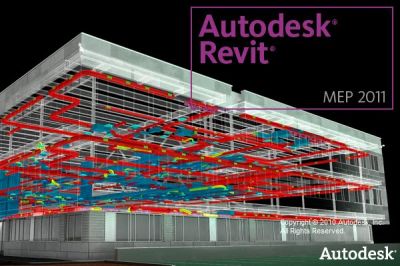2011/01/01 - Concept Engineering Begins Using Revit
The engineering industry is constantly changing and Concept Engineering is always adapting to service all and any engineering needs. Thus, Concept Engineering has fully integrated the use of BIM (Building Information Modeling) via Autodesk's Revit to augment the current use of AutoCad. Building Information Models, specifically Revit, are firmly entrenched in the engineering industry and quickly expanding. The widely adopted Revit offers field-proven solutions built for specific engineering fields.

Compared to CAD (Computer Aided Drafting), BIM creates and manages projects faster,
more economically and with less environmental impact. BIM, unlike CAD, no longer uses solely 2D line work but rather a single 3D digital model to represent construction. It produces realistic, real-time design scenarios. These scenarios allow us to make more informed design decisions earlier in the process. It also enables thorough energy analysis of the building including solar path simulations to estimate daylight harvesting, electrical colour schemes to differentiate electrical loading and lighting requirements, web-based climate data and more. Highly visual analysis makes it easier to understand and communicate the importance of design changes in comparison to the alternatives. Furthermore, as early design concepts change, the integrated whole body analysis is automatically updated accordingly. Building information models also accurately simulate construction by using realistic components such as life-like conduit, wiring, power receptacles and lighting fixtures. Realistic components enable a better understanding on cost, scheduling and coordination with other disciplines.
Communication between engineers, architects, contractors and clients is paramount, especially as modern buildings become more complex. BIM and Revit are a holistic approach to engineering services which improves the coordination between different disciplines. Using building information modeling everyone on the project team can make better, more informed decisions across the project's entire lifecycle. Moreover, Revit has proven to increase the reliability and accuracy of all designs while still facilitating discipline specific work. Through more accurate project documentation and representation a higher quality product is not only obtained but maintained throughout the entire project.
Revit's intelligent, model-based system delivers a faster, cost-effective product with fewer conflicts. Focusing on sustainable design Concept Engineering, with Revit, provides an efficient building design from concept through the project's entire lifecycle.
September 21, 2011
